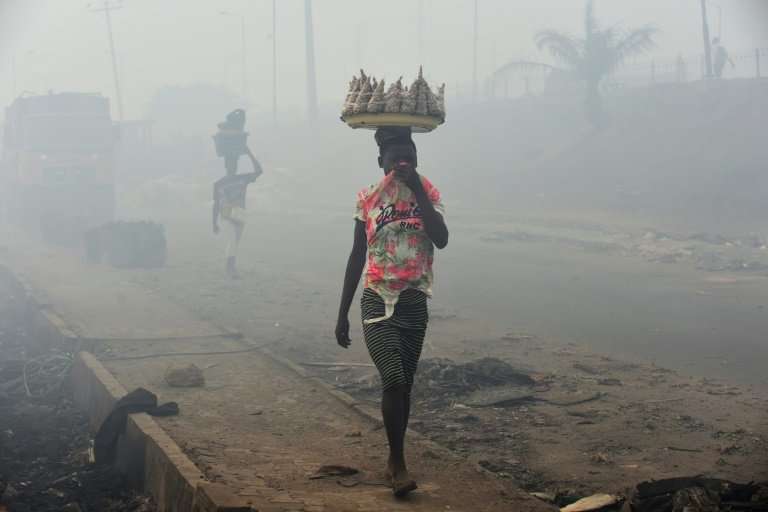 Kidney failure, also known as end-stage renal disease (ESRD), is emerging as a silent but devastating epidemic in developing countries, affecting millions of lives annually. The World Health Organization (WHO) estimates that over 850 million people globally suffer from kidney disease, and the burden is disproportionately heavy in low-income nations due to limited healthcare access, late diagnoses, and inadequate public awareness.
Kidney failure, also known as end-stage renal disease (ESRD), is emerging as a silent but devastating epidemic in developing countries, affecting millions of lives annually. The World Health Organization (WHO) estimates that over 850 million people globally suffer from kidney disease, and the burden is disproportionately heavy in low-income nations due to limited healthcare access, late diagnoses, and inadequate public awareness.
The condition, which occurs when the kidneys lose their ability to filter waste, regulate blood pressure, and balance body fluids, is fatal if left untreated. It can lead to severe health complications, including the buildup of harmful toxins in the body. Treatment options such as dialysis and kidney transplants are lifesaving but remain prohibitively expensive for most, making the condition a significant cause of premature death in resource-poor settings.
The leading causes of kidney failure—diabetes and hypertension—are often poorly managed in developing countries due to limited access to medications and healthcare facilities. In addition, infectious diseases like malaria, HIV/AIDS, and hepatitis B and C, which are more prevalent in these regions, further increase the risk of kidney damage.
A concerning factor is the widespread use of unregulated herbal remedies, which often contain nephrotoxic substances. Recurrent or untreated urinary tract infections (UTIs), particularly among women, are another common cause that can progress to kidney failure. Environmental factors such as exposure to contaminated water, heavy metals, and pesticides compound the problem.
The ripple effects of kidney failure extend beyond health. Treatments like dialysis and transplants cost anywhere from $20,000 to $50,000 per year, a figure out of reach for most individuals in low-income countries where the average income is significantly lower.
Consequently, many patients face early mortality, while families endure emotional and financial strain. The condition sidelines individuals in their most productive years, further impacting economic stability at both household and national levels.
Dr. Oluwatoyin Ayo-Farai, a leading public health advocate, underscores the urgency of addressing this crisis. “In many developing countries, the burden of kidney failure is exacerbated by delayed diagnosis and a lack of affordable treatment. Public health initiatives must focus on early detection, education, and prevention,” she says.
She highlights that traditional herbal remedies, while culturally entrenched, often worsen kidney damage due to their unregulated content. “Governments must regulate these remedies and provide safer alternatives. Encouraging lifestyle changes, managing chronic diseases like diabetes and hypertension, and investing in public education about kidney health are critical steps.”
Experts emphasize that prevention is far more cost-effective than treatment. Establishing routine screenings for high-risk populations, improving access to essential medications, and regulating harmful substances in traditional medicines are essential. Expanding the availability of dialysis centers and kidney transplant facilities is also a priority.
Public health campaigns targeting kidney health awareness can make a difference because HIV and kidney disease are increasingly recognized as interconnected public health challenges. . Governments and NGOs must collaborate to integrate kidney disease prevention into broader health agendas, ensuring this crisis no longer remains in the shadows.
Efforts to combat the crisis are underway. Public Health Organizations such as APIN Public Health Initiatives, funded by US PEPFAR through the CDC, identify people living with HIV using the Nigeria AIDS Indicator and Impact Survey to find previously unidentified people living with HIV (PLHIV) and get them on Highly Active Anti-Retroviral Medications (HAART). Dr. Oluwatoyin Ayo-Farai, a Senior Technical Associate and team lead at APIN Public Health Initiatives, is contributing significantly to efforts to improve health outcomes for people living with HIV (PLHIV). Under programs funded by PEPFAR through the CDC, her team implements strategic interventions that identify previously undiagnosed PLHIV, link them to lifesaving Highly Active Antiretroviral Therapy (HAART), and improve adherence to treatment protocols. These efforts led to a reduction in treatment interruptions to below two percent in supported states and an increase in viral suppression rates from 84 percent pre-surge to 96 percent.
This progress is crucial not only for managing HIV but also for mitigating associated comorbidities like kidney disease. PLHIV are at heightened risk of kidney complications due to factors such as the direct impact of the virus on renal function, side effects of antiretroviral therapy, and traditional risk factors like hypertension and diabetes. HIV-associated nephropathy (HIVAN) remains a leading cause of end-stage renal disease among PLHIV, particularly in sub-Saharan Africa.
As researchers increasingly focus on the intersection of environmental health impacts and early detection strategies for kidney disease, integrating kidney health monitoring into HIV care programs becomes essential. By addressing these interconnected health challenges, public health initiatives can further reduce morbidity and mortality, enhancing the quality of life for PLHIV while advancing global health goals.
Kidney failure is largely preventable, and solutions are within reach if nations act decisively. “Kidney failure is a silent killer,” Dr. Ayo-Farai reminds us. “We must address it with the urgency and resources it demands to protect the health and future of our communities.”
As the global healthcare landscape evolves, the hope remains that kidney health will no longer be neglected. With a concerted effort, countless lives can be saved, and the burden of this devastating disease can be significantly reduced.






